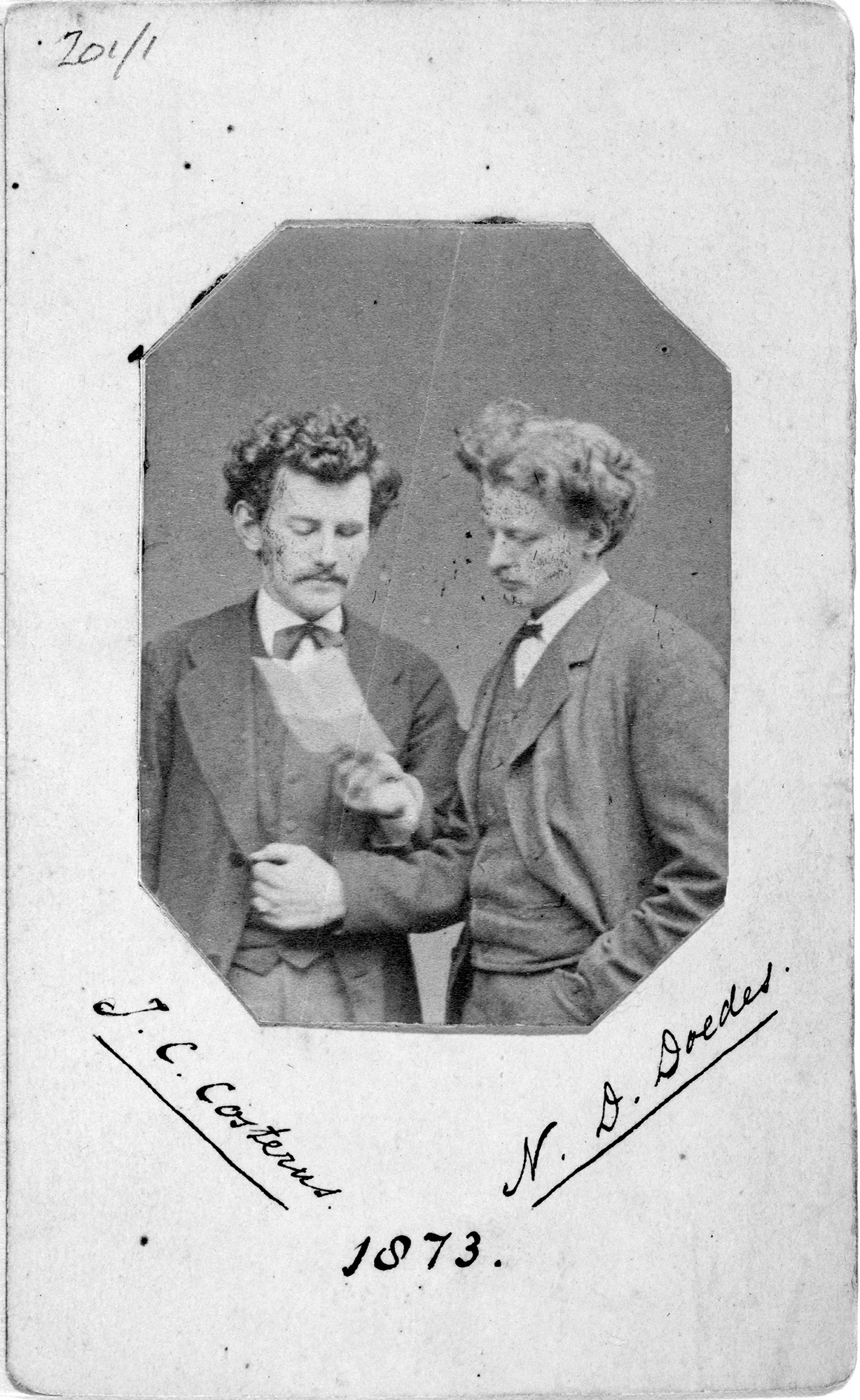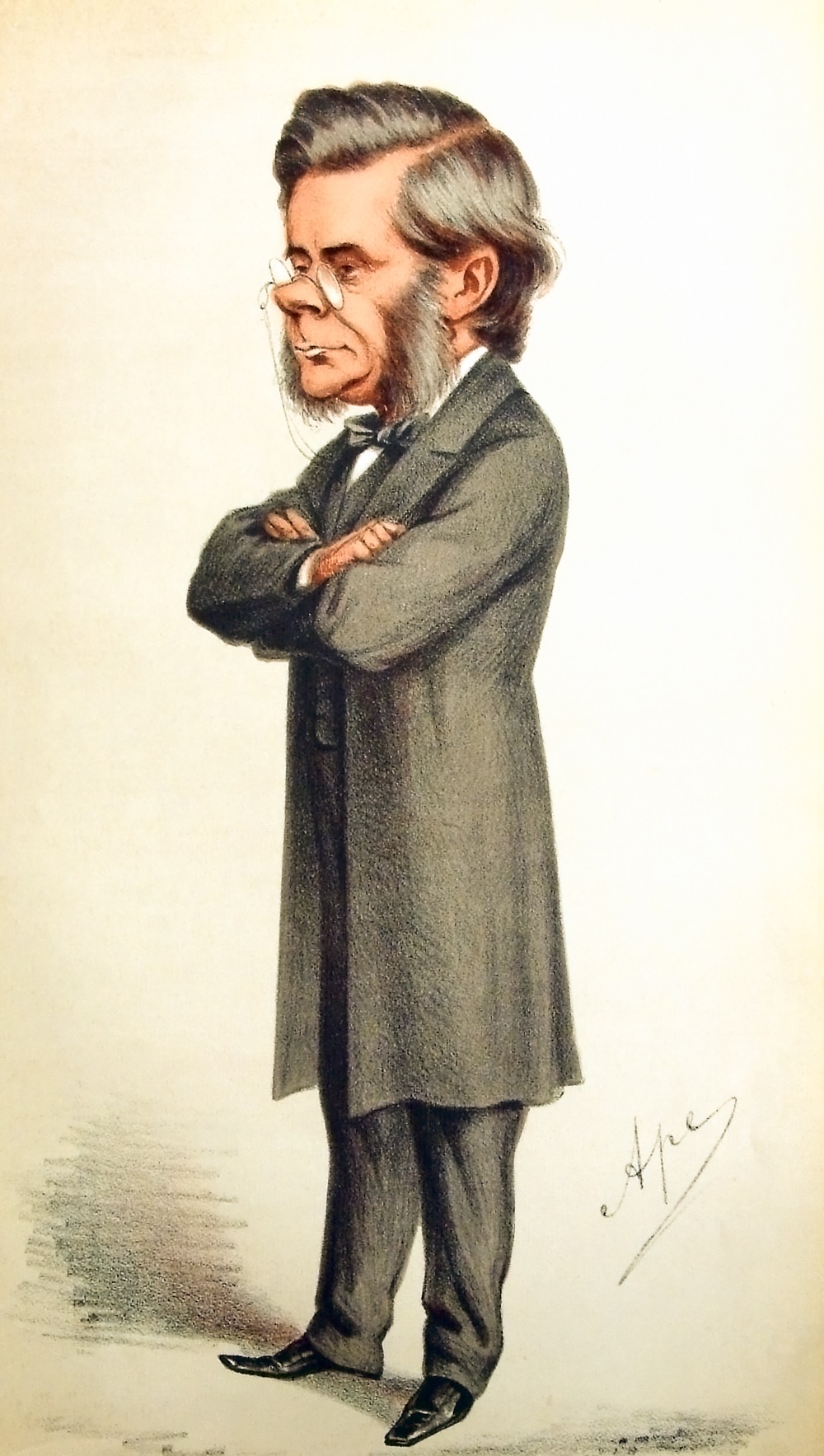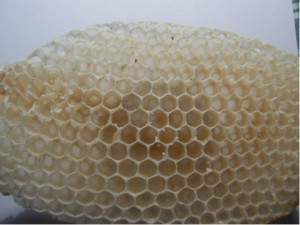From Japetus Steenstrup 8 April 1852
Summary
His difficulties in answering CD’s letter of 3 Jan [1852] [see 1469]. There is no Lepas mitra in the Lorenz Spengler collection. He undertakes to compare the specimens of Balanus sent by CD with those of Spengler.
He thanks CD for his book [Fossil Cirripedia (1851)].
His work with Professor Forchhammer and Mr Worsaae.
| Author: | Johannes Japetus Smith (Japetus) Steenstrup |
| Addressee: | Charles Robert Darwin |
| Date: | 8 Apr 1852 |
| Classmark: | Det Kongelige Bibliotek, Copenhagen |
| Letter no: | DCP-LETT-1478A |
Matches: 1 hit
- … by intelligence and those, crushed by instinct, I pointed out at the meeting of the …
| letter | (1) |
| Darwin, C. R. | (1) |
| Darwin, C. R. | (1) |
| Steenstrup, Japetus | (1) |

Instinct and the Evolution of Mind
Summary
Sources|Discussion Questions|Experiment Slave-making ants For Darwin, slave-making ants were a powerful example of the force of instinct. He used the case of the ant Formica sanguinea in the On the Origin of Species to show how instinct operates—how…
Matches: 5 hits
- … slave-making ants were a powerful example of the force of instinct. He used the case of the ant …
- … of Species . 1859. London: John Murray. (See: Chapter 7 “Instinct”) Manuscripts …
- … p. 46, 52-59 Letters Letter Packet: Instinct and the Evolution of Mind …
- … would you characterize Darwin's central question regarding instinct and its relation to the …
- … this topic? 2. By what mechanism does Darwin believe instinct acts? How does this mechanism …

Darwin in letters, 1858-1859: Origin
Summary
The years 1858 and 1859 were, without doubt, the most momentous of Darwin’s life. From a quiet rural existence filled with steady work on his ‘big book’ on species, he was jolted into action by the arrival of an unexpected letter from Alfred Russel Wallace…
Matches: 5 hits
- … final pieces of his grand puzzle as they came to him. Instinct: the problem of bees …
- … of divine design in nature. Darwin hypothesised that the instinct of the hive-bee to produce these …
- … 1858, even though he had completed a draft of the chapter on instinct the previous March. One …
- … the correspondence. I work from a sort of instinct to try to make out truth As …
- … certain extent; but, if I know myself, I work from a sort of instinct to try to make out truth’ ( …

Living and fossil cirripedia
Summary
Darwin published four volumes on barnacles, the crustacean sub-class Cirripedia, between 1851 and 1854, two on living species and two on fossil species. Written for a specialist audience, they are among the most challenging and least read of Darwin’s works…

Darwin's in letters, 1873: Animal or vegetable?
Summary
Having laboured for nearly five years on human evolution, sexual selection, and the expression of emotions, Darwin was able to devote 1873 almost exclusively to his beloved plants. He resumed work on the digestive powers of sundews and Venus fly traps, and…
Matches: 4 hits
- … letter to James Crichton-Browne, 30 December 1873 ). Instinct In February, Darwin …
- … definition recently advanced by Alfred Russel Wallace, that instinct was the performance of complex …
- … a letter from William Huggins on a case of inherited instinct in three generations of dogs, …
- … had occasion to reflect more personally on the power of instinct and inheritance when he was asked …

Darwin’s reading notebooks
Summary
In April 1838, Darwin began recording the titles of books he had read and the books he wished to read in Notebook C (Notebooks, pp. 319–28). In 1839, these lists were copied and continued in separate notebooks. The first of these reading notebooks (DAR 119…
Matches: 23 hits
- … [A. P. de Candolle 1820] in Geolog. Soc. F. Cuvier on Instinct [F. G. Cuvier 1822] read …
- … of science connected with Nat. Theol: [Brougham 1839] on instinct & animal intelligence very …
- … Erasmus 21 recommends me to read Reimeruss on instinct in German [Reimarius 1760] The …
- … “Resume analytique des observations par F. Cuvier sur l’instinct”—L’Institut 1839. p. 408 [Flourens …
- … [DAR *119: 11v.] The Philosoph. of Instinct & Reason by S. Bushnan. Longman. 5 s …
- … praised by Silliman poor Cyclop. of Anat.— Instinct by D r . Alison [W. P. Alison 1847]. No …
- … on Philosophy of Science [Whewell 1840].— Speculates on Instinct.— Lecons de Botanique …
- … [DAR *119: 18v.] D r . Etherington Observ. on Instinct [Etherington 1841–3]. Whittaker …
- … Tr. [Blumenbach 1792] —Rev. A. Wells Lectures on Instinct [Wells 1834] Cline on the …
- … th . Metzger Getreidarten [Metzger 1841] Alison on Instinct [W. P. Alison 1847]. 79 Art. …
- … 20a] 1847. Aug. 14 th . Flourens de l’instinct et l’intelligence des Animaux …
- … von Humboldt 1822] 19 th Couch Illustrations of Instinct [Couch 1847].— 25. Bunbury …
- … 1852]. Also hybrid-wheat [Hooker 1852].— Whately on Instinct—Pamphlet 1848 in Hort. Soc. …
- … eds.] *119: 15 Alison, William Pulteney. 1847. Instinct. In vol. 3, pp. 1–29, of Todd, …
- … Bushnan, John Stevenson. 1837. The philosophy of instinct and reason. Edinburgh. *119: 11v …
- … 119: 21b Couch, Jonathan. 1847. Illustrations of instinct deduced from the habits of …
- … *119: 23 Cuvier, Frédéric Georges. 1822. Instinct. In vol. 23, pp. 528–44, of Cuvier, …
- … Etherington, George F. 1841–3. Observations on instinct . 2 pts. Edinburgh and London. *119: …
- … analytique des observations de M. Frédéric Cuvier sur l’instinct et l’intelligence des animaux. …
- … *119: 9v., 11v. ——. 1845. De l’instinct et de l’intelligence des animaux. Résumé des …
- … 119: 1a ——. 1836. Observations upon the instinct of animals . London. [Darwin Pamphlet …
- … 119: 18b Wells, Algernon. 1834. On animal instinct . Colchester. 119: 4a …
- … Library.] 128: 10 Whately, Richard. 1847. On instinct. A lecture . Dublin. *128: 182 …

The writing of "Origin"
Summary
From a quiet rural existence at Down in Kent, filled with steady work on his ‘big book’ on the transmutation of species, Darwin was jolted into action in 1858 by the arrival of an unexpected letter (no longer extant) from Alfred Russel Wallace outlining a…
Matches: 4 hits
- … his grand puzzle as they came to him. The chapter on instinct posed a number of problems for …
- … of divine design in nature. Darwin hypothesised that the instinct of the hive-bee to produce these …
- … 1858, even though he had completed a draft of the chapter on instinct the previous March. By …
- … certain extent; but, if I know myself, I work from a sort of instinct to try to make out truth’ …

Darwin in letters, 1880: Sensitivity and worms
Summary
‘My heart & soul care for worms & nothing else in this world,’ Darwin wrote to his old Shrewsbury friend Henry Johnson on 14 November 1880. Darwin became fully devoted to earthworms in the spring of the year, just after finishing the manuscript of…
Matches: 1 hits
- … ( letter to S. H. Haliburton, 13 December 1880 ). Instinct and worms After finishing …

Before Origin: the ‘big book’
Summary
Darwin began ‘sorting notes for Species Theory’ on 9 September 1854, the very day he concluded his eight-year study of barnacles (Darwin's Journal). He had long considered the question of species. In 1842, he outlined a theory of transmutation in a…

The origin of language
Summary
Darwin started thinking about the origin of language in the late 1830s. The subject formed part of his wide-ranging speculations about the transmutation of species. In his private notebooks, he reflected on the communicative powers of animals, their…
Matches: 1 hits
- … University Press. Pinker, Steven 1994. The language instinct: the new science of language …

Moral Nature
Summary
In Descent of Man, Darwin argued that human morality had evolved from the social instincts of animals, especially the bonds of sympathy and love. Darwin gathered observations over many decades on animal behavior: the heroic sacrifices of social insects,…

British Association meeting 1860
Summary
Several letters refer to events at the British Association for the Advancement of Science held in Oxford, 26 June – 3 July 1860. Darwin had planned to attend the meeting but in the end was unable to. The most famous incident of the meeting was the verbal…
Matches: 1 hits
- … established that the general principle is, to differentiate instinct from automatism, and then to …
4.18 'Figaro' chromolithograph 1
Summary
< Back to Introduction In a cartoon of 1874 by Figaro’s French-born artist Faustin Betbeder (known as Faustin), Darwin holds up a mirror reflecting himself and the startled ape sitting beside him. Their hairy bodies, seen against a background of palm…
Matches: 1 hits
- … ‘an untenable and repulsive theory’, which the ‘instinct of humanity rejects’. ‘Mr. Darwin . . . …

Darwin and dogs
Summary
Darwin was almost always in the company of dogs. Nina, Spark, Pincher, and Shiela. Snow, Dash, Bob, and Bran. The beloved terrier Polly (right). They were Darwin's constant companions at home and in the field, on walks and in sport, in his study and…
Matches: 1 hits
- … and selection, noting how its every bone and muscle, instinct and habit, were fitted to run down …
Essay: Natural selection & natural theology
Summary
—by Asa Gray NATURAL SELECTION NOT INCONSISTENT WITH NATURAL THEOLOGY. Atlantic Monthly for July, August, and October, 1860, reprinted in 1861. I Novelties are enticing to most people; to us they are simply annoying. We cling to a long-accepted…
Matches: 10 hits
- … such, for instance, as the ‘absolute invariableness of instinct;’ an absolute want of intelligence …
- … asked by the Boston reviewers is, Why, when structure and instinct or habit vary— as they must have …
- … the gills of an aquatic animal converted into lungs, while instinct still compelled a continuance …
- … their heads under water after ceasing to be tadpoles. The instinct promptly changes with the …
- … yet furnished with wings, were suddenly inspired with the instinct of a bird, and precipitated …
- … that the higher brute animals have comparatively little instinct and no intelligence, is a heavy …
- … However, we are not so sure as is the critic that instinct regularly increases downward and …
- … is reduced to moderate proportions, we know of nothing in instinct surpassing that of an animal so …
- … ‘the human mind has become what it is out of a developed instinct,’ is a statement which Mr. Darwin …
- … been penned in inadvertence both of the very definition of instinct, and of everything we know of in …

Getting to know Darwin's science
Summary
One of the most exciting aspects of Charles Darwin’s correspondence is the opportunity it gives to researchers to ‘get to know’ Darwin as an individual. The letters not only reveal the scientific processes behind Darwin’s publications, they give insight…
Matches: 1 hits
- … Darwin’s early life and education, to the evolution of instinct and the mind, to the power of …
Women’s scientific participation
Summary
Observers | Fieldwork | Experimentation | Editors and critics | Assistants Darwin’s correspondence helps bring to light a community of women who participated, often actively and routinely, in the nineteenth-century scientific community. Here is a…
Matches: 1 hits
- … Dora Roberts reports an incidence of “misguided maternal instinct”, observed in her hen house. She …

Darwin in letters, 1878: Movement and sleep
Summary
In 1878, Darwin devoted most of his attention to the movements of plants. He investigated the growth pattern of roots and shoots, studying the function of specific organs in this process. Working closely with his son Francis, Darwin devised a series of…
Matches: 3 hits
- … John Romanes, who was engaged in his own research on animal instinct and intelligence. ‘Frank’s son, …
- … cloth from defilement.’ Darwin had lengthy noteson animal instinct that he had originally intended …
- … argument for the existence of God, as it seems to me, is the instinct or intuition which we all (as …

Darwin on childhood
Summary
On his engagement to his cousin, Emma Wedgwood, in 1838, Darwin wrote down his recollections of his early childhood. Life. Written August–– 1838 My earliest recollection, the date of which I can approximately tell, and which must have been before…
Matches: 1 hits
- … horse..–– I had greatest horror of this story.––keen instinct against death.–– Some other …

The evolution of honeycomb
Summary
Honeycombs are natural engineering marvels, using the least possible amount of wax to provide the greatest amount of storage space, with the greatest possible structural stability. Darwin recognised that explaining the evolution of the honey-bee’s comb…

Fake Darwin: myths and misconceptions
Summary
Many myths have persisted about Darwin's life and work. Here are a few of the more pervasive ones, with full debunking below...
Matches: 1 hits
- … Many myths have persisted about Darwin's life and work. Here are a few of the more pervasive ones, …


